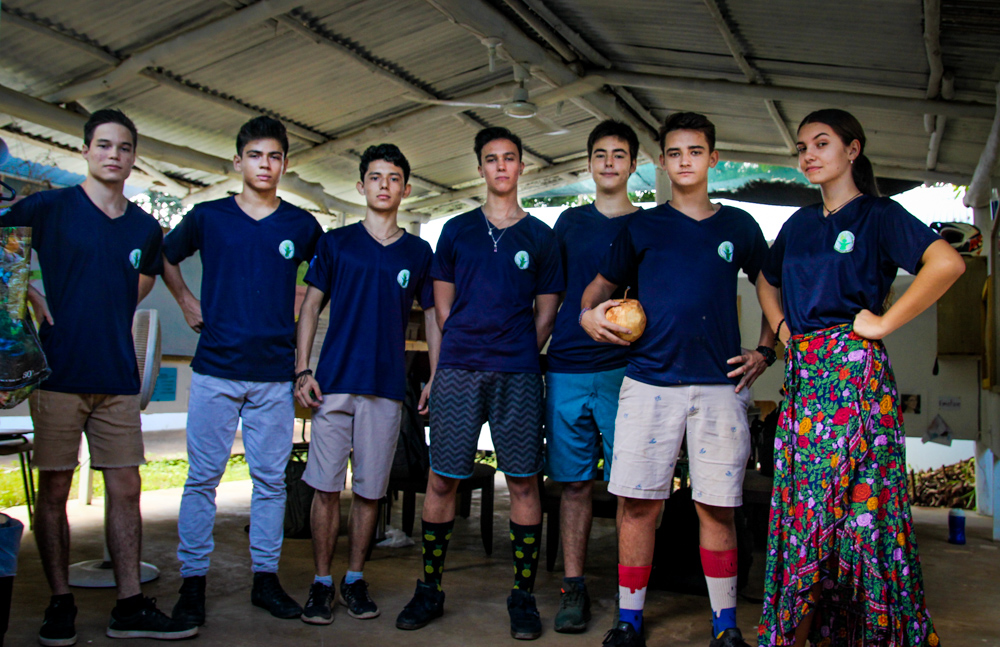
by Angie Briceño | Jul 11, 2020
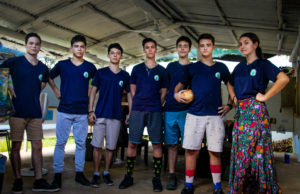
Over the past few weeks, we have all gotten to know our 12th grade, and 2nd generation International Baccalaureate students, through Tuesday’s social media posts “Portraits of a Graduate”.
2020 is a very different year for the 12th graders, where what was to be a last year of memories together in class has ended up being an isolated experience in each of their homes, working towards a common goal of obtaining the International Baccalaureate degree. What we can conclude from these “portraits’ is that Futuro Verde has been not only a portal of knowledge but also a family, for this group of students. The relationships and friendships they have established at Futuro Verde will be forever carried in their hearts. Futuro Verde has been an extremely important part of their lives and they have been important to the growth and evolution of Futuro Verde. Many of them have been with us since elementary school, others joined us at the beginning of high school. We have seen them grow as students and also as people. We have watched their trajectories and we can agree that today they are citizens of the world and are ready to go out and give the best of themselves and contribute to making our world a better place. We wish them all success!
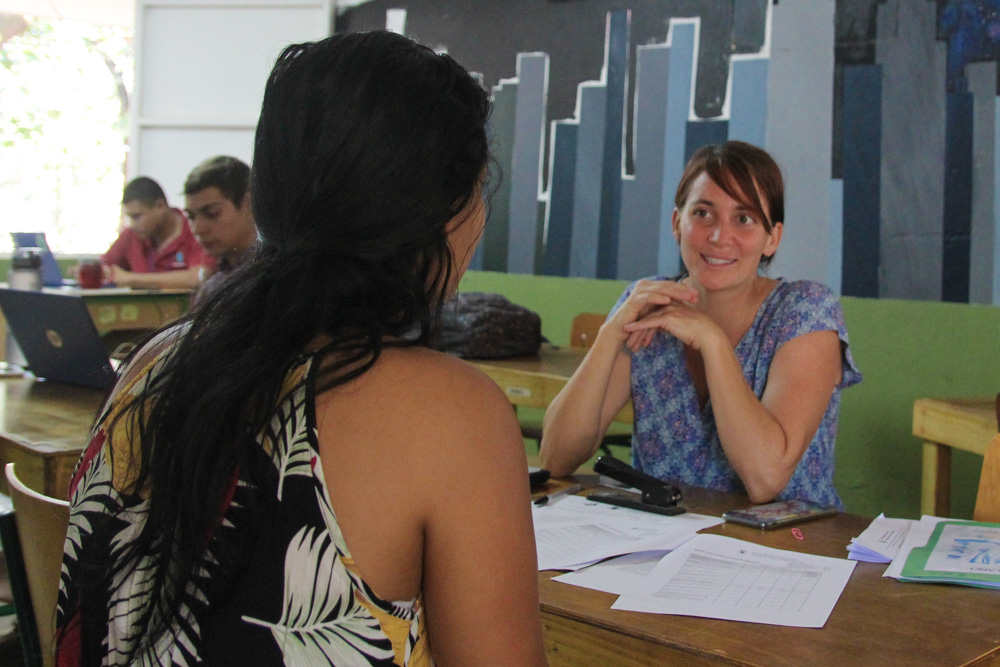
by Katie Chiaverini | May 4, 2020

Conferences offer the opportunity for families and teachers to discuss student progress, share the report card, discuss student strengths and areas of growth and to allow time for parents to ask important questions and share with teachers valuable information regarding their child. During the COVID-19 Pandemic from March 17th until now, all Futuro Verde students and teachers shifted learning to an online delivery. We have continued educating our students with our online program that fully complies with curricular and grade-level requirements. Futuro Verde also created a modified rubric for evaluation purposes that fairly accounts for student learning while also taking into consideration the challenges inherent to the global and local crisis. Following our online education model, we will move ahead with our trimester I parent-teacher conference plans, but in a modified online format.
As a staff and school, we have tried several different formats for online collaboration among teachers, administration and students, including the two we have found most popular and user friendly, Zoom and Google Hangouts. At this point, teachers and families can decide which method will work best whether it be Zoom, Google Hangouts, or phone calls. If anything changes, we will provide updated information but at this time you can get a head start by downloading Zoom on your phone, tablet, or computer. Follow this link to sign up for this free application and be ready to speak with your child’s teacher on May 19th or 20th. More information will be sent out soon regarding the scheduling of conferences, how to access your child’s report card and any additional technical support that you might need assistance with to successfully connect with your child’s teacher.
We remind you that one way to keep up on your child’s work and progress is through their Google Classroom account. You can receive regular messages through the platform but we also recommend sitting down with your child to look over their to-do lists, feedback on assignments and grades. In the primary years, teachers will continue communicating with families on a regular basis through Google Classroom, Google Hangouts, Seesaw, emails or phone calls. We know that not just one communication method works for all so we are trying to accommodate different needs.
At this time, we are noticing that students are being pushed to sharpen their “soft skills” which include things like communication, time management, and organization. Our modified online rubric accentuates these soft skills by giving weight to students who show effort, creativity and resilience as well as timeliness and communication, while continuing to evaluate content mastery. We hope that we can find a “silver lining” in the crisis and focus on developing these other areas which we know build character and more balanced human beings. As teachers and administrative staff, we are definitely being given the opportunity to develop new skills and strengthen those we already possess. Learning is definitely a life-long process and we are on that journey together right now!
We look forward to taking the time to celebrate your child’s growth during such a difficult time and also to work together as a team to identify ways in which we can help them be even more successful. As the age old saying goes….it takes a village to raise a child… and in this crisis this saying rings more true than ever.
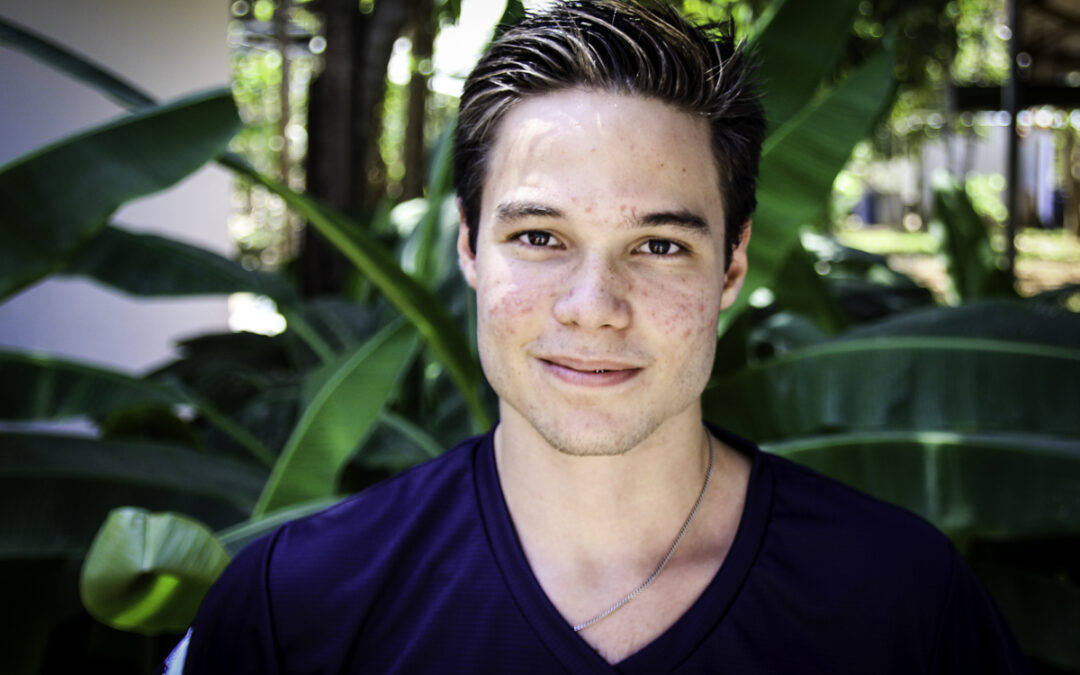
by Tristan Gamboa | May 2, 2020
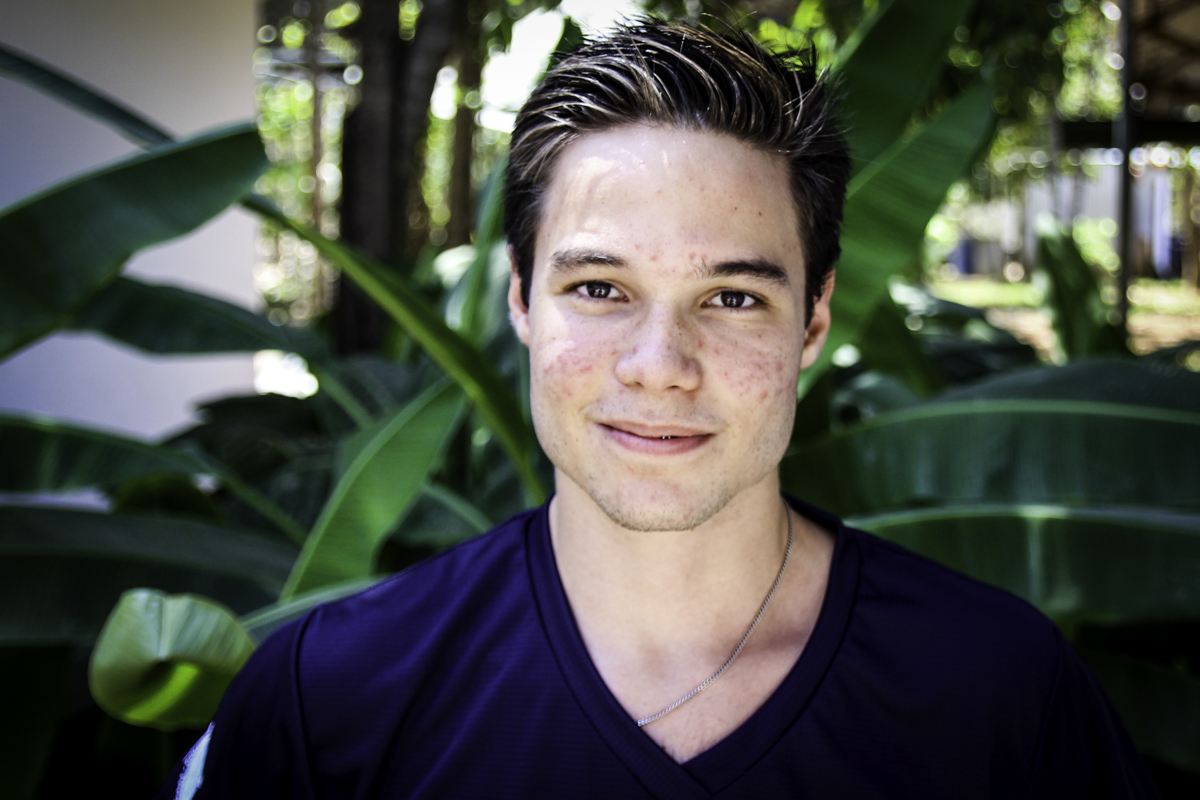
The CAS program requires students to experience different stages of learning through their projects or experiences. These stages are research, preparation, action, reflection and demonstration. In this article, 12th grader Tristan Gamboa Porier tells about what he learned and accomplished through all the stages.
CAS requires us as students to be explicit about the learning outcomes achieved during our experiences or projects. The learning outcomes I developed throughout this project are:
- Identify own strengths and develop areas of growth
- Demonstrate that challenges have been undertaken, developing new skills in the process
- Demonstrate how to initiate and plan a CAS experience
- Show commitment to, and perseverance, in CAS experiences
The way these learning outcomes were achieved and developed throughout the project are shown in the reflection underneath.
My Little Journey as a Club Teacher
Hi, my name is Tristan Gamboa. I am a twelfth-grade student and this is my reflection for my 2019 CAS project. What was my project? Well, my project was really simple and had really simple goals. You see I made a connection, I had two things in mind “What is something I like to do?” and “What is something I’ve never done before?” so then after some reflection I concluded “I like parkour, and I’ve never been a teacher of any kind before” And that is how my parkour club was born.
So then my project was born out of a combination of a strength and an area of personal growth. I used to be pretty good at the sport but teaching is something that had scared me and I personally would have never imagined myself doing it, so it for sure was a risk for me to set myself up to becoming a teacher. But taking this risk finally paid off, and not because the club went great (because on some occasions it didn’t) but because by the end of the club my perspective towards teaching completely changed. So I will take you on a short journey so that you can have an idea of how this process of “I will never be a teacher” to “I want to continue this club after I’m done with the project”.
Monday 3 of September of 2019 was the first class I gave and I decided for this class to be an introduction to the sport and an introduction to how I had planned for the club to carry out as much for me to get to know them. And well, I got to know them. The first thing I realized was that the kids had different attitudes towards this class, some of them were there because they wanted to be there and some seemed to be there because their parents told them to. And well this was something I didn’t expect but ended up being my biggest problem as a teacher.
As the classes kept going my first realization became a consistent issue (the kids who were there only because they had to). But along the way, I realized positive things too. Such as the fact that the homeroom teacher of my most enthusiastic kids told me that they looked forward to my club every Monday and every time I asked them for feedback at the end of the class to know how well I was doing as a teacher and they would always say that they enjoyed the class which I was always glad to hear. One particular day which really moved me was a day I was in a bad mood, and the kids asked me “why aren’t you smiling like always” and then as the class continued they kept trying to find out what was wrong and were doing their best to cheer me up which ultimately did work and left that class with a big smile on my face, all because of the kids.
With the progress of the class both of us, the kids and I, were learning a lot. They were really learning the tricks and moves that I was teaching them and I was learning how to keep their attention and how to make the activities in which they learned more fun for them. I was suddenly not working alone but in a team, kids themselves were helping their partners and helping me with the class which was teamwork that I never saw coming but I was glad to take advantage of.
A particular thing as a teacher was finding the balance between a fun class and a focused class. Every class I would work really hard to achieve that balance I would usually achieve it to a certain extent until one day when the kids were completely out of control and I thought to myself “How did my favorite teachers deal with my class when we would get out of control?”. So then that is exactly what I did, for the first time I spoke to the kids with complete seriousness and with clear intentions with my words and told them that those who were not being obedient, would no longer come to the class since they weren’t allowing their peers to learn what they came to learn. And with that, I regained their attention and for the rest of the class, they remained completely obedient but gladly not in a bad mood but just happy to be there.
The two examples I provided really summarise the ups and downs of my journey as a club teacher. In the beginning, I was afraid I could be a bad teacher and by the end, I realized that I really enjoyed teaching. Although the kids were very energetic and could become uncontrollable I had gained their respect and they had gained my love. And just like that, I had gained much more from that experience than what they could have gotten. Yes they learned a couple of tricks and one of them really fell in love with the sport which I’m proud of but I got to experience the frustration and the joy of being a teacher.
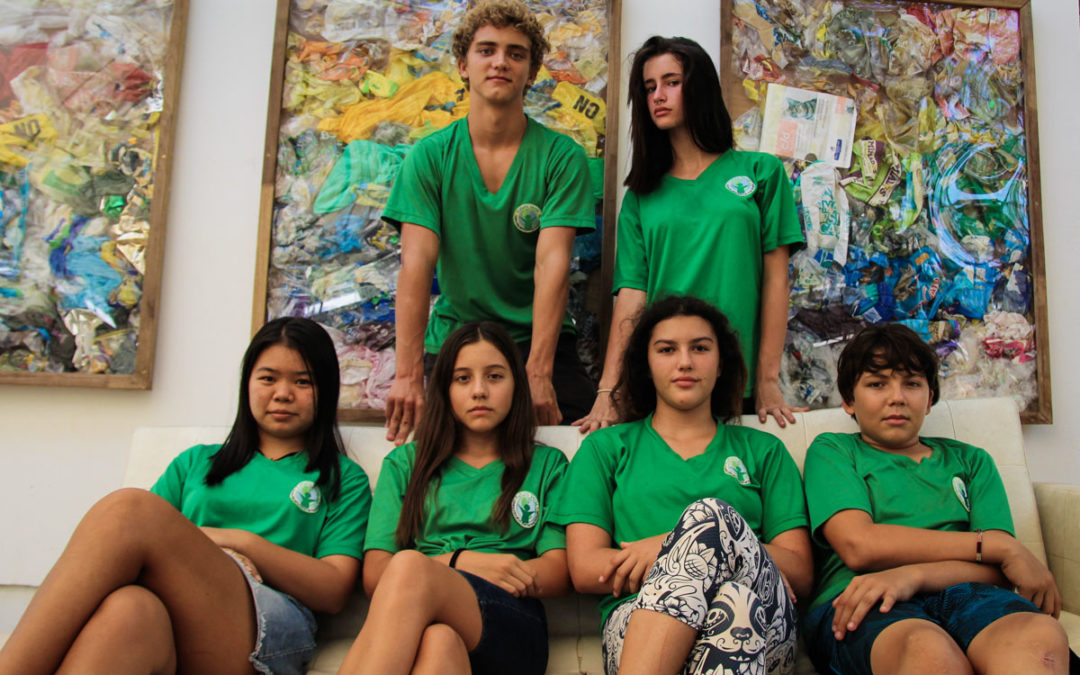
by Angie Briceño | Feb 28, 2020
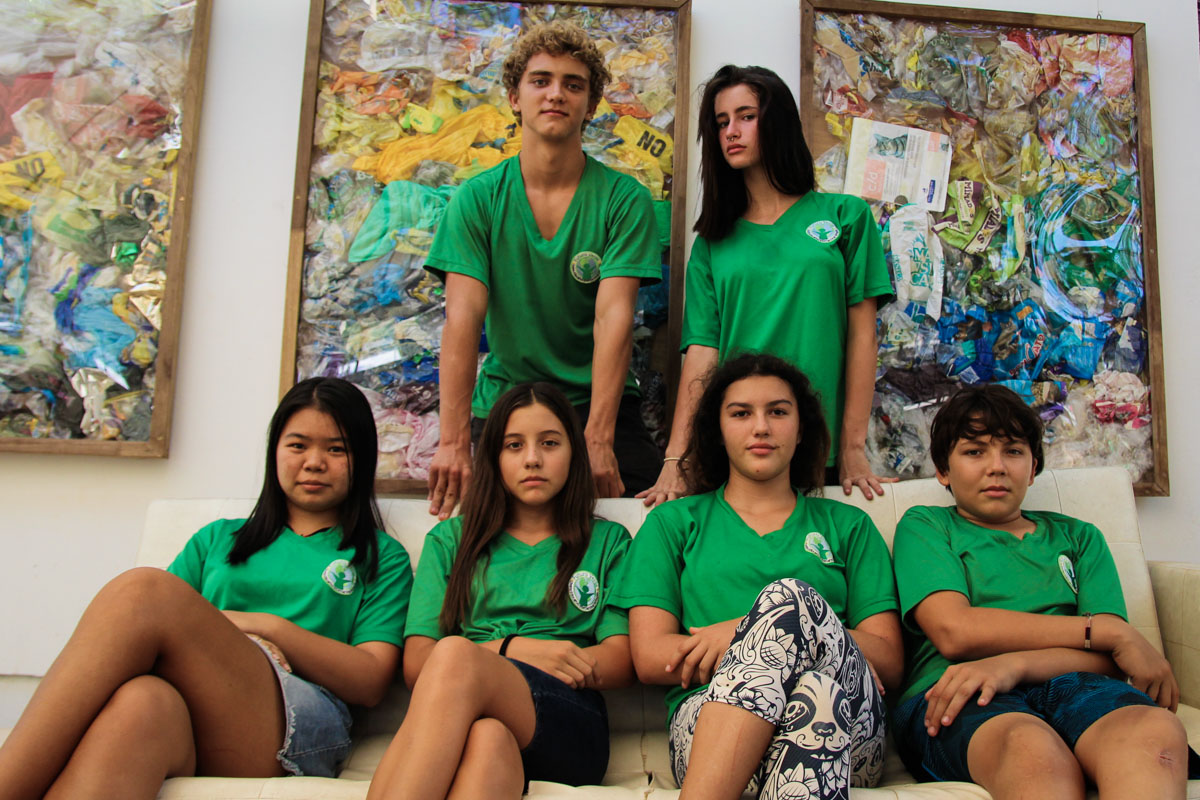
As many of you have already heard, the year 2020 marks the beginning of our new Model United Nations Club as one of our extracurricular activities. We have already successfully completed the process of admitting students to the club and are very excited to announce the various activities we are organizing, as well as the conferences we will be participating in throughout the school year.
Here are some important dates regarding the Model U.N. Club:
- During the months of April and May we will be collaborating with SEK International School in San Jose with the goal of having informative training sessions for our MUN Club students.
- We will collaborate with La Paz Community School, a school in the Guanacaste area to conduct training sessions.
- On August 29th and 30th, we will be attending the first inter-school conference at the East MUN Conference, where students from Model U.N. clubs across the country are participating.
- On September 25th, 26th and 27th we will be attending the national CRIMUN conference in San Jose.
- Our last event will be participating and collaborating with the Model United Nations Club at United World Colleges (UWC).
It is very inspiring that our participating students can be part of this great opportunity. Not only will they develop skills throughout the learning process such as formal writing skills, public speaking, and debate, among others, but they will also be able to get to know new places and make new friends.
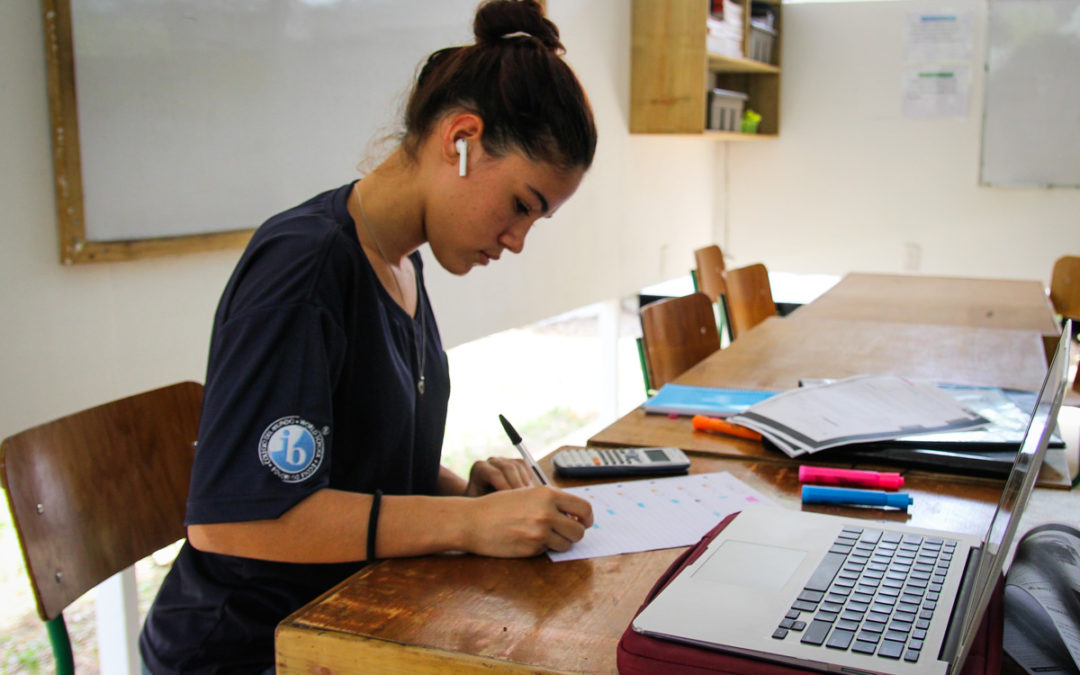
by Khalida Lockheed | Feb 25, 2020
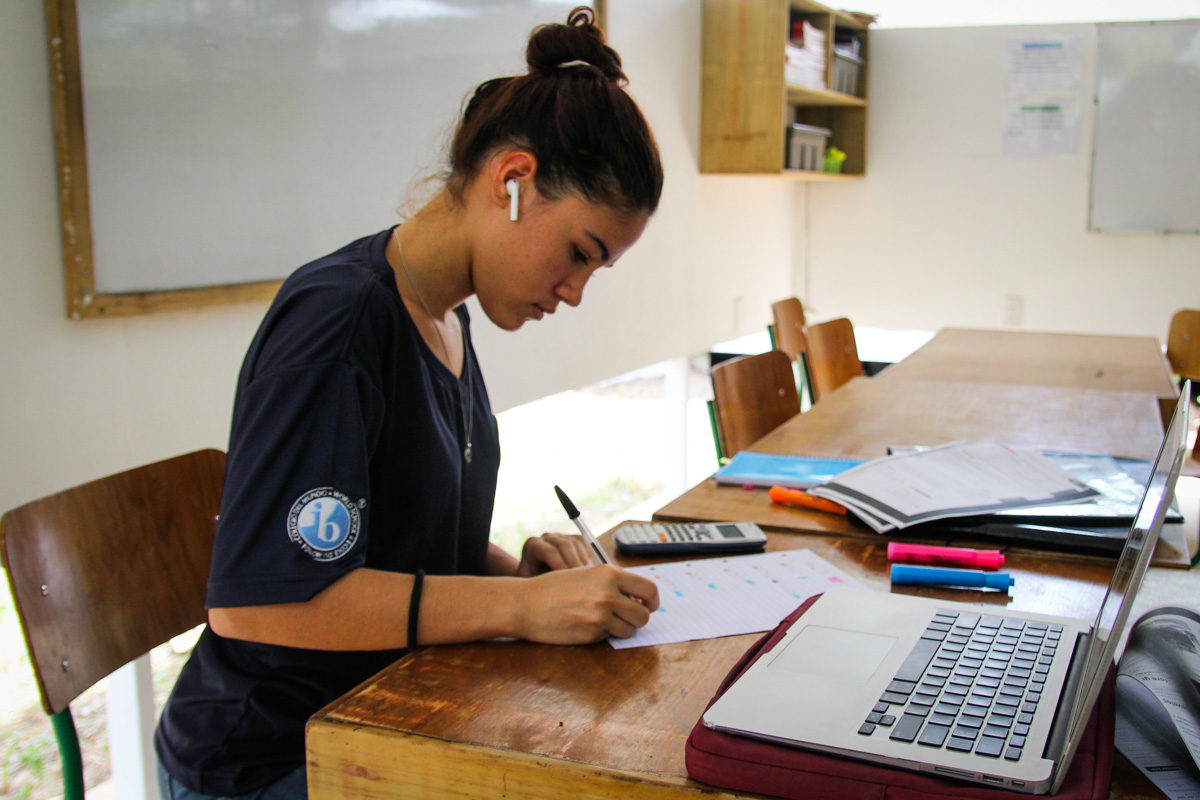
At Futuro Verde, being an IB school means teaching students to think independently, encouraging engagement with local issues in a global context, and valuing both personal and academic achievement. While our IB Diploma Program students may take a several pathways to graduation, all Futuro Verde students benefit from being an IB World School.
Research shows that the IB Diploma Program stands out for factors such as university preparedness, enrollment and achievement, academic persistence, critical thinking, and higher education outcomes. According to a study from 2013, IB high school graduates from the USA were 2 times more likely to attend and ultimately graduate from a four year university than the average US national graduate. The most notable reason that IB Diploma Program graduates persist at university and ultimately graduate at higher rates than non-IB graduates is their preparation for juggling university coursework. Most notably, the areas of time management, study skills and writing (think Extended Essay!) were highlighted by university students who had graduated with the IBDP as being the most helpful.
On the whole, research shows that the IB DP graduates outperform non IB graduates from across all advanced high school programs worldwide, be it A levels or AP. Part of the reason for this is the integrated nature of the curriculum, with the Core (Theory of Knowledge, the Extended Essay, and CAS) requiring critical thinking, research experience, time management, and civic mindedness. Another part is the academic rigor. In a global study of a comparison between the mathematics course offerings of the DP and five other advanced qualifications from around the world, researchers found that “IB’s further mathematics HL was determined to be the most cognitively demanding course of the curriculums examined.” Further evidence of the academic rigor may be deduced from a study conducted in the USA this year which showed that average SAT scores among IB students, as compared to their non-IB peers, were over 100 points higher!
Finally, in summary of the value of the IB Diploma for university attendance rates, university selectiveness, and university performance, research finds that:
Former DP students in the United States (US) are significantly more likely to attend a ‘selective’ or ‘highly selective’ institution compared to the average US college-goer.
In the UK, they are more than twice as likely attend a top 20 university than the average A level student.
Minority and low income IB students from Chicago Public Schools were shown to go on to university at significantly higher rates than a matched control group of their non-IB peers of similar academic ability.
Feedback collected from a wide range of IB graduates suggests that IB students have an easier time adjusting to university studies.
Surveys of university and college admissions staff in the US, the European Union (EU) and Australia show that these professionals are both familiar with the programme and hold it in very high esteem compared to other qualifications.
An analysis of the recognition policies of the top universities in the US reveals that most of these institutions grant credit or advanced standing for high performance in DP courses.
http://www.ibo.org/research
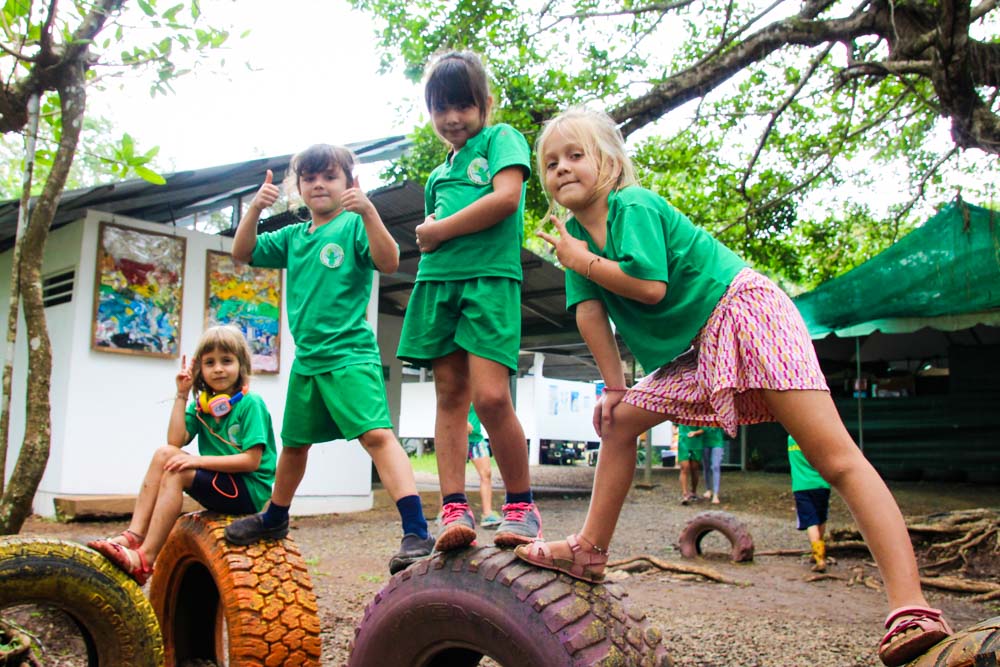
by Futuro Verde | Feb 5, 2020

School will be starting very soon! To begin this new 2020 school year, we’re sharing some important reminders for the first month of school. Some things will stay the same as last year, while others will be changed this year to improve and perfect our performance and quality service for our Futuro Verde community.
Important Dates for the First Month of School
- February 10, 12.30 pm – 3 pm: Open House. An open-door event for all students and families at Futuro Verde; an opportunity to get the know the school, teachers, and staff that work and support students year-round.
- February 11: First day of classes for 1st through 12th grade. Preschool Department, gentle start: interviews with preschool students and families. Office staff at Futuro Verde will organize appointments for individual meetings with each family. During this appointment, families meet with the two preschool teachers in order to get to know each other, share important details about their students, and set goals for the year.
- February 12: Preschool Department, gentle start: interviews with preschool students and families. Office staff at Futuro Verde will organize appointments for individual meetings with each family. During this appointment, families meet with the two preschool teachers in order to get to know each other, share important details about their students, and set goals for the year.
- February 13: First day of school for Prepa (no school for pre-K or Kinder). Both teachers will work together on this day to get to know our preparatory students and help them adapt to their new role as older students in our preschool department.
- February 14: First day of classes for pre-K and Kinder (no classes for Prepa). It’s the little ones’ turn to have a day for themselves! Our two preschool teachers will work together on this day to get to know our Kinder and Pre-K students and help them feel comfortable as they start the school year.
- February 17: All students in the preschool department have their first day of classes together, from 8:00 am to 3:00 pm.
- March 4, 1pm – 5 pm: Back to School Night. See the detailed schedule of activities and workshops for Back to School Night here.
Futuro Verde Planners
Each year, Futuro Verde students receive a planner specially designed by our school in order to facilitate communication between parents and teachers. We strongly recommend that parents check their student’s planner every day to encourage smooth communication with teachers.
The planner also includes important information that helps families stay organized with school events and news, and contains resources that are worth reviewing each year:
- Schedule
- FV Directory
- Description of our Learning Community and Futuro Verde Values
- Academic Honesty
- Calendar
- Important Dates 2020
School Schedule
Futuro Verde’s class schedule is Monday through Friday from 8 am to 3 pm. It is recommended that students arrive 10 minutes before the start time so that they can settle into their classrooms and greet their classmates. That way, classes can begin on time at 8 am, without interruptions.
The departure time is 3 pm. No changes are expected for students who take school transportation since last year’s system worked well. However, some changes will be implemented for children who are picked up by their parents and/or relatives in private vehicles as our pick-up and drop-off lot has been remodeled. Please read the email about this topic for specific details.










